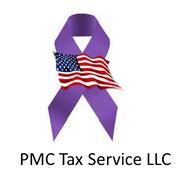
Registering as a limited liability corporation (LLC) is necessary whether you’re entering a professional partnership or branching out on your own. It’s also a popular choice for small business owners because of its tax planning advantages, flexibility, and operational protections. Below is more information about this type of business entity and how to approach filing taxes for it.
What Is an LLC?
An LLC is a business structure that behaves as a corporation and must file federal taxes like a sole proprietorship or partnership. Similar to C and S corporations, an LLC has limited liability which protects the owners’ personal assets during a lawsuit or bankruptcy. However, the owners can also modify and adjust this entity to fit their specific needs. This can include defining how your business allocates profits and losses in an operating agreement and switching tax statuses to acquire a lower annual bill.
What Accounting Do You Need?
 An LLC doesn’t have as many strict accounting requirements as bigger corporations. Instead of filing an annual financial report, an LLC must only keep bank records—such as monthly statements and deposit slips—to prove income and expenses to the IRS during tax season.
An LLC doesn’t have as many strict accounting requirements as bigger corporations. Instead of filing an annual financial report, an LLC must only keep bank records—such as monthly statements and deposit slips—to prove income and expenses to the IRS during tax season.
The owners can also track this in a general ledger that records the business’s revenue and expenses, non-monetary assets, and liabilities.
How Do You Handle Taxes?
You can approach tax planning for an LLC in several ways. If you’re the sole proprietor, you only have to report the revenue and expenses on your personal tax return using a Schedule C form from the IRS. This form requires an income statement, generated from your bookkeeping records to fill in the form.
If you’re filing your LLC with multiple owners involved, there are a few different options:
- You can file as a partnership with Form 1065 which supplies a Schedule K-1 to each partner. The K-1 is for passing through the share of the tax liability into each partner’s tax return per their basis in the LLC.
- You can file as an S-corp with Form 1120-S. Each LLC member owner receives a Schedule K-1, which, again, reports the tax liability through each member's personal return.
- You can also file as a C-Corp with Form 1120, which has the company paying its own taxes; each owner's personal return is not involved.
The business returns require yearly financial statements that show net income and expenses, as well as a balance sheet of your business assets. The Schedule K-1 shows each individual’s share of the business’s income and expenses, the partner’s/member’s basis in the LLC, plus other pertinent tax related information.
If you need help with tax planning for your LLC, contact PMC Tax Services LLC in Lincoln, NE. Their team of skilled tax advisors has extensive financial knowledge for individuals and businesses across Nebraska. They provide federal and state tax preparation, amended return assistance, and more. For more information about their services, visit the website. Call (402) 467-5529 to schedule a consultation.
About the Business
Have a question? Ask the experts!
Send your question

